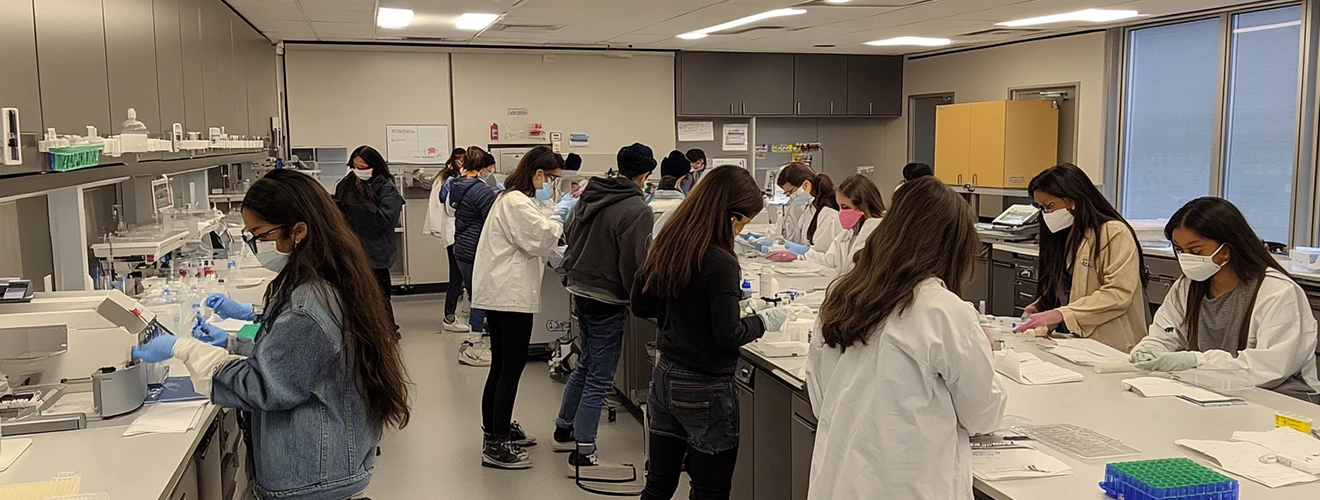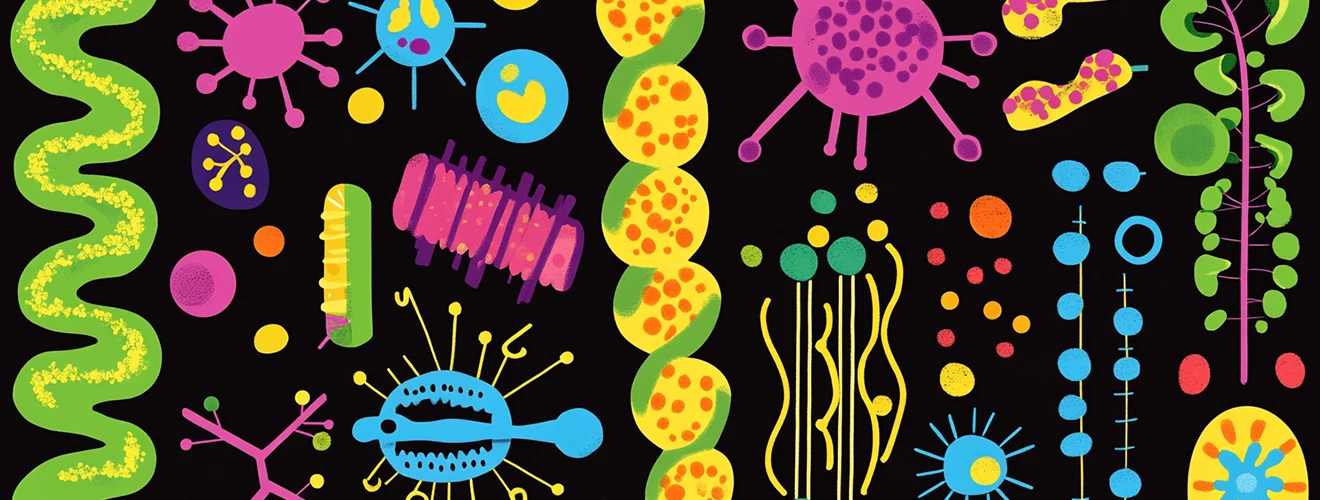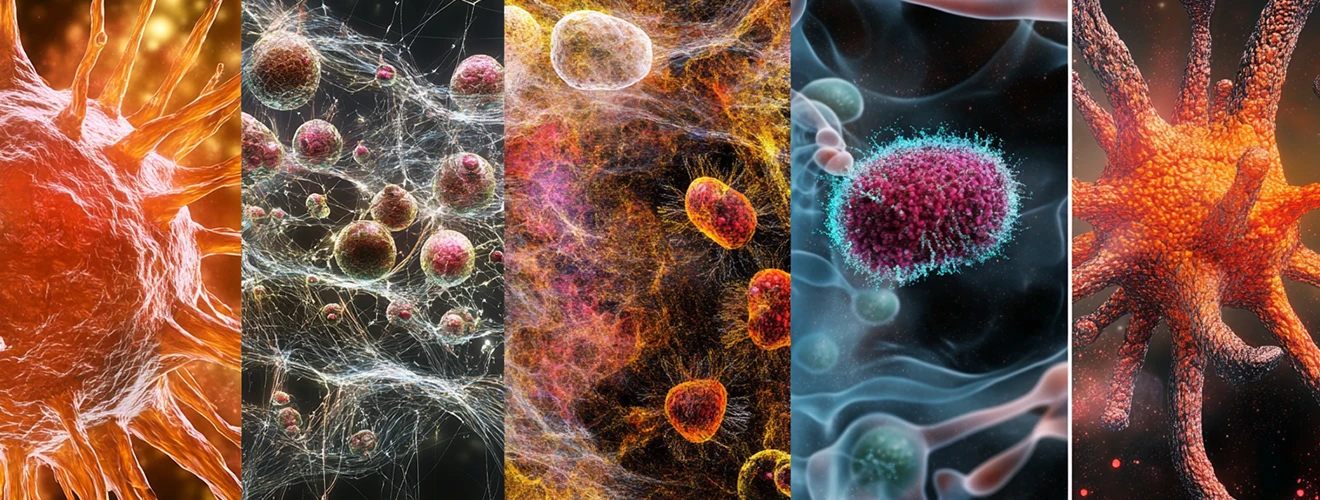
Research in the Biological Sciences
Course Description
This four-week intensive training program is designed to expose students to a broad range of molecular, microbiological, and cell biological techniques currently used in research laboratories. Students are immersed in the research experience, giving them a taste of "life at the bench".
Using a project-based approach, the course progresses from a survey of basic lab techniques to the application of current molecular techniques in cell biology, genetics, developmental biology and cancer biology. After two weeks of basic training, the students spend the remainder of the course working on an independent project.
Most of a typical RIBS day is spent in lab with lectures given when needed to provide background and context for the experiments. Communication skills are important in science. RIBS students will have weekly writing assignments, and will keep a detailed lab notebook. We will read original research articles and students will participate in group presentations. Students will also attend weekly lunch time seminars given by research faculty.
The course ends with a research forum in which the students present the results of their projects. Successful completion of the course will give participants the experience and confidence to work in a research laboratory.
Course Criteria
High school biology is required. Students tend to be more successful in this course when they have completed one year of an advanced biology course and attained a strong grade in the course. Students who have completed a significant amount of lab work outside of class may find this course repetitive.
Academic Interest
Biological Sciences
Application Materials
A complete application includes a transcript, two short essays, a letter of recommendation, writing sample, application fee, and a submitted parent confirmation. If you are seeking need-based financial aid, you must indicate that in your application before it is submitted. Please refer to the Application Instructions for complete details.
Instructor(s)
Robert Bednarczyk, Chris Schonbaum
Cost
$15,200
Other Courses to Consider
These courses might also be of interest.
 Biomolecules of Life - Session 1
Biomolecules of Life - Session 1This course will introduce students to the molecular building blocks of life (i.e., proteins, including enzymes, nucleic acids, carbohydrates, and lipids) and explain their structure and function.
You will also learn how these molecules impact human health and contribute to disorders and diseases. Lab work will involve modern techniques used in biochemical and molecular biology research such as molecular modeling, rational drug design, and enzymatic assays.
At the end of the course, students will work in groups to prepare a final project focused on a disease or biological process of interest. Exams will also be used to assess students' understanding.
Residential Biotechnology for the 21st Century - Session 1
Biotechnology for the 21st Century - Session 1This course is designed to provide a stimulating introduction to the world of biotechnology.
Starting with an overview of the basic concepts of molecular biology and genetics that serve as a foundation for biotechnology, the course will segue into the various applied fields of biotechnology. Lectures and some of the corresponding hands on experiments will include microbial biotechnology, agricultural biotechnology, biofuels, cloning, bioremediation, medical biotechnology, DNA fingerprinting and forensics.
The goal of this course is to provide students with an appreciation of important biotechnology breakthroughs, the techniques involved and the associated bioethics issues.
Residential Biology and Its Modern Applications - Session 2 (31)
Biology and Its Modern Applications - Session 2 (31)This course aims at developing the basic concepts that form the crux of life from both structural and functional perspectives. It will cover cellular functioning and organization and the transformation of energy. In addition, concepts of evolution and natural selection will be investigated. The course also introduces the student to the continuity of life from genetic and molecular perspectives.
The course will extrapolate to demonstrate how cells communicate through cell signaling and how defects in such communication often lead to diseases. The course will conclude by discussing various aspects of current applications of biology in medicine, drug discovery, nanotechnology, forensics, and bioengineering.
The goals of this course will be realized through various course activities including labs, group projects and presentations, and team-based learning. Both synchronous and asynchronous modes of interaction and communication will be used in this course.
Residential